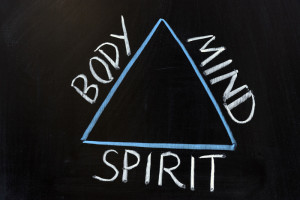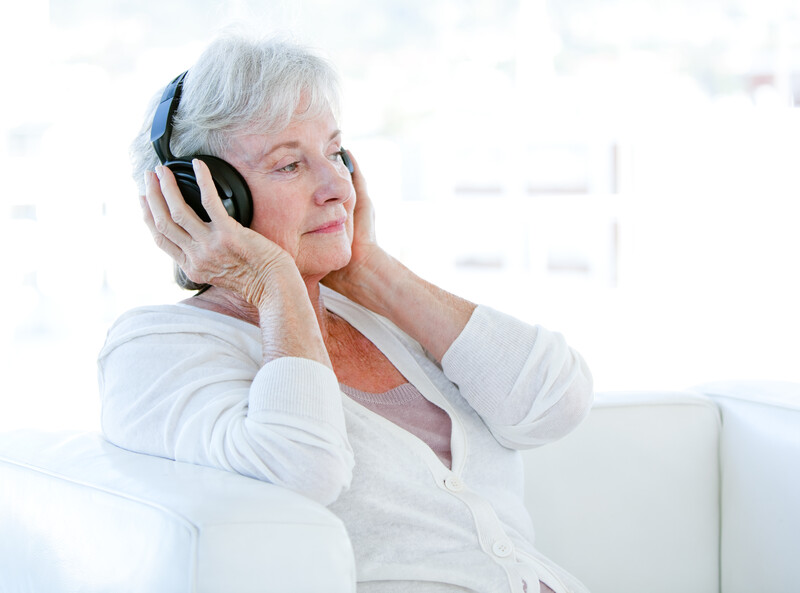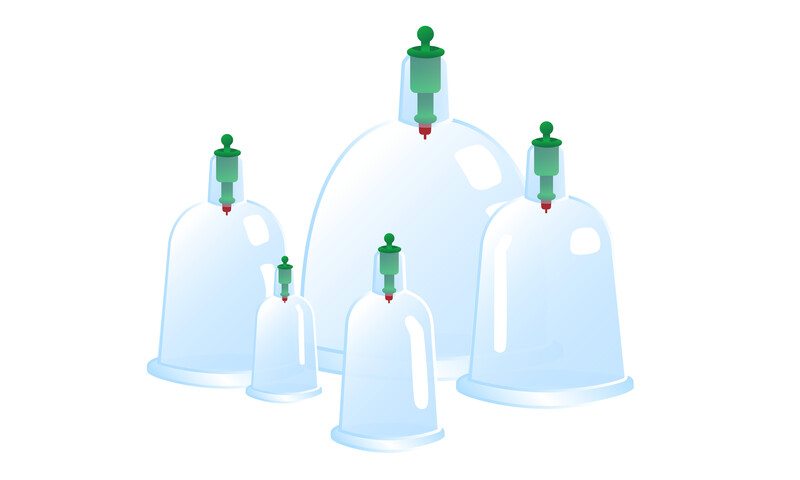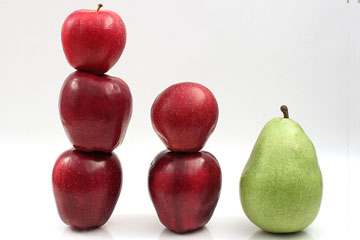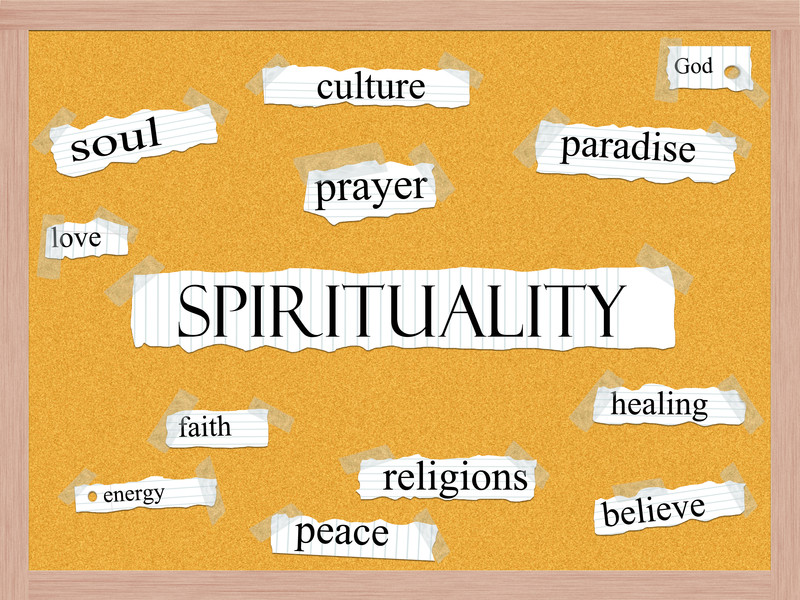
For the millions of people who suffer from chronic pain, they have many resources to turn to when it comes to seeking relief and management. Exploring a variety of areas will provide people with the best options and ideas, so they can decide what they feel will help them to best manage their pain over time. One area worth exploring is that of spirituality and how it can be helpful with chronic pain management. In this article we will explore spirituality, why it’s a good idea for those with chronic pain to strengthen it, and some of the various ways to go about doing so.
For an individual, spirituality may or may not associated with religion. People can be both religious and spiritual, or they can just be spiritual, with what they believe in life not necessarily coming from any religious teachings or doctrine. Humans are spiritual in nature and we find it to be vital to our life experience. Spirituality encompasses our state of mind, our understanding of life, and our feeling of connection to others. It also includes such ideas as our purpose in life, and our ideas on life being more than a mere physical existence. Further, according to the Indian Journal of Psychiatry, spirituality involves and fosters such qualities as love, honesty, patience, tolerance, compassion, and a sense of detachment, faith, and hope (1).
Support for Spirituality
Whether or not having a strong spirituality will help with chronic pain is something that everyone from scientists to psychologists have pondered. There has been research and surveys done to see where people and doctors fall when it comes to this issue. The evidence thus far supports the fact that spirituality can help people to better manage their chronic pain.
In a 2011 issue of the journal Religions, researchers concluded that religious and spiritual beliefs help people to overcome obstacles and let go of the negative, among other benefits. Further, they report that spirituality is an awareness of something sacred beyond the physical that can be shared and witnessed, such as love, connection, meaning, and hope. They also note that those who have found such spirituality are more able to tolerate pain (2).
Further support for placing more focus on spirituality to help with pain management comes from the German journal Shmerz, where a May 2015 study suggests that more attention should be given in research and daily practice to religiosity and spirituality as a means of coping with chronic pain (3). In addition, in the January 2015 issue of the journal Pain Medicine, researchers reported that spirituality has been an integral aspect of patient care for those in pain. They also reported that there is mounting evidence for its relevance and benefit for those with pain, and that there is increasing evidence to support including spirituality as a component in the treatment of pain (4).
How Spirituality Helps
The scientific evidence is increasingly coming out in favor of people including spirituality as part of their pain management plan. Yet you may still wonder how it is that spirituality is going to help with your pain? If we go back to considering what spirituality is, then we can begin to see how it can help with our overall pain management.
When you have a weak sense of spirituality, you may have greater struggles with feeling that you have a place in this world, or that your life has much meaning. Such struggles may make you more prone to feeling sad, depressed, and negative. Yet our emotions and our outlook on life are factors that can help determine how we deal with pain and how we experience being in pain.
Negativity and unhappiness lead to your body feeling more stress, which will in turn end up leading to more pain and health problems. According to the National Institutes of Health (NIH), stress has an emotional and physical effect on the body, including raising blood pressure and causing muscle tension (5). When you focus on becoming happier, having more peace, and work towards being grateful for the life you have, you will stronger in your efforts to manage chronic pain.
Choosing Spirituality
When you strengthen your spirituality you will be helping to improve your mood and attitude, you will become more resilient, and you will find a greater purpose in your life. By focusing on these things you will help yourself to feel better, reduce the stress and negativity in your life, and help yourself to better cope with chronic pain in the process. Not only will you be smiling more and having a better attitude, but your chronic pain will be better managed, too.
There is an old Zen adage that says “Pain is inevitable, suffering is optional.” This is a great way to think about spirituality and how you can use it to help you with your pain management. We may not have the cure to just put a stop by to the chronic pain that people experience, but we do have ways to help manage that pain. We have ways to help people suffer less from pain, which is where the ‘optional’ comes into play. If you see the benefits of strengthening your spirituality and take steps to make it a bigger part of your life, you are in essence fighting to not let suffering take over.
Strengthening Spirituality
If you are one of the many suffering from chronic pain, you may already know that it can make you question your faith and test your spirituality. Many people begin to wonder if the pain they are experiencing is a punishment from God, or they feel hopeless, that things will never be better or enjoyable again. This is why strengthening spirituality is so important. By strengthening your spirituality, you will be better at helping yourself to get through the rough times when you question these things. You will know how to change the way you think so that it benefits you, rather than leads you further down the path of suffering.
There are numerous ways you can work on strengthening your spirituality, including:
- Spiritual meditation – There are many ways meditation can help improve one’s overall outlook, as well as help people to better manage their chronic pain. In fact, in the April 2015 issue of the journal Behavioral Medicine, a study reported that spiritual meditation has been found to reduce the frequency of migraines and physiological reactivity to stress. They also report that spiritual meditation improves pain tolerance (6). In another study in the March 2015 journal Global Advances in Health and Medicine, they had participants engage in a 6-week program to treat depression. Participants engaged in meditation to help with the mind-body intervention for depression. They concluded that there was a significant improvement in depressive symptoms, spiritual growth, mental health, and quality of life, following the six week program (7). Engaging in spiritual meditation is not as complicated as you may think. You don’t have to have any special skills to do it, nor do you need any costly equipment. All you need to do is sit comfortably with your back supported, relax all of your muscles, breath through your nose, and focus on your breathing as you inhale and exhale. As you do this, concentrate on a mantra (e.g., a word, sound, or statement). Continue repeating the words as you exhale. Each time your mind wanders, just return back to your breath and mantra. Try to do this one or two times each day for 5-10 minutes each sitting.
- Practicing gratitude – It’s hard to not be happy when you are counting your blessings, which is what gratitude is all about. In life, you can look at things as the glass being half empty or half full. You can focus on the chronic pain and negativity, or you can make the choice to focus on all the good that is around you, even with chronic pain being a part of your life. Focusing on being grateful doesn’t mean you don’t realize there is chronic pain, it means you have made the choice that it will not take over your life. Instead, you are going to focus on what is good and positive in your life. In other words, you will begin to see the glass as half full on a regular basis. There is research that supports the association of gratitude and an overall sense of well being (8). There are many ways you can begin to practice gratitude in your life, including starting each day with thinking of things you are grateful for, keeping a gratitude journal, sending thank you notes to people, going around the table at dinner each night and having everyone say something they are grateful for, reciting positive affirmations, and telling others you appreciate them. These are things you can easily put into action to begin reaping the mental rewards of gratitude.
- Reframing thoughts – Learning to reframe our thoughts is important if we want to strengthen our spirituality. Many people are quick to say and repeat a variety of negative things, especially if we are someone who suffers from chronic pain. When we continuously keep saying these things, we help to reinforce and give them strength. If we can learn to reframe these things we will help to take some of their power away, which will beneficial for our pain management. Also, rather than focusing on why you are the one in chronic pain, you focus on reframing those thoughts and strengthening your spirituality, so you can better cope with it and still enjoy a quality life. Reframing your thoughts means to think about the content of your thoughts and try to focus on more positive thoughts. For example, rather than thinking the pain is a punishment, think of it as a wake-up call. Instead of thinking it has no meaning, see it as a way to help others and that it has a higher meaning. Rather than feel like you have no life as things are right now, focus instead on how well you are managing through your chronic pain.
- Helping others – When we help others without being asked to do so, it usually makes us feel pretty good. It can lift our spirits to know that we have helped make someone else’s day better, easier, or that we put a smile on someone’s face. This alone is reason enough to start trying to do more to help others. It will help strengthen your spirituality and make you feel more gratitude toward all the things you have in your life. Look for ways to engage in random acts of kindness or a way to volunteer to help others. No matter what route you take to help others, you will also stand to gain some benefit. In the August 2015 issue of the journal Neuroscience and Biobehavioral Reviews, researchers report that there is a growing body of evidence that suggests that helping others is linked to better health and longevity in the helper. They conclude that this may be related to the release of hormones after helping others, which offers stress-buffering and restorative properties (9).
- Practicing happiness – When we think back to the Zen adage about suffering, we can see that happiness is a choice. We may not be able to prevent or stop the pain that comes our way, but we can make the choice to be happy as often as we can. When we do this, we are going to engage in things that make us happy, thus releasing stress and increasing an overall sense of well being. Find those things you like to do that make you happy and try to engage in them on a regular basis. Even when you are not doing any activities, make the choice to be happy. Learn more about how using positive thoughts can help to improve your happiness and well being. Put this choice into action on a regular basis. Feeling sadness, anger, or other not-so-happy emotions is normal from time to time. But we don’t want to stay there long.
- Prayer – Engaging in prayer can help to strengthen your spirituality. In the February 2015 issue of the journal Evidence-based Complimentary and Alternative Medicine, a study reports that prayer is commonly used among patients for health purposes, and that prayer is a resource that allows patients to positively transform the experience of their illness (10). Prayer is one more way that you can help to strengthen your spirituality and use it toward coping with your chronic pain. It’s one more tool that you have at your disposal. The good news, too, is that it costs nothing and can be done easily anywhere. Payer is a conversation that you have with the divine, which can be short or long. Prayer is a great way to bring about change within us, because it makes us more grateful, hopeful, humble, and helps to strengthen our spirituality.
As a Part of Healthcare
If the doctor you have been working with regarding your chronic pain has not discussed spirituality or religion with you, do not be surprised. Most doctors are not given training in such topics, and some may even feel uncomfortable bringing it up. A study in the Journal of Family Practice found that physicians rarely ask their patients about their religious beliefs. Yet 77 percent of those in the study believed that their physician should consider their spiritual needs. They concluded that many patients desire more discussions on this topic with their doctor (11). If having a discussion with your doctor about spirituality and how it can help with your pain management is important to you, then you may need to be the one to bring it up.
In an August 2014 study in Journal of Religion and Health, researchers reported their findings of a study that involved a group of women suffering from chronic orofacial pain. The study group focused on spirituality, while the control group did not. They concluded that the group that focused on spirituality had less pain, fewer complaints, and that spirituality was an important tool for coping with the pain (12).
Moving Forward
Making the choice to become more spiritual is just one more step in the direction toward helping to cope with and manage your chronic pain. It is not something that is absolutely going to take it all away, but it’s another effective resource. Being spiritual will help keep you feeling connected to something bigger than yourself, as well as produce the chemicals in your body that help you to feel happy and reduce stress; and that will lead to less pain.
Staying motivated to do this may be a challenge for some, but once you stick with it over time you will find that it becomes a positive habit. Choose some of these things to incorporate into your life and make a plan to do them for 30 days. By putting forth the effort to do them for a month you will feel the rewards, and you will be creating a new healthy habit. If you can’t do these things on your own, you can always find a partner, so you can keep each other accountable, or join a group. Joining a prayer group or attending a religious gathering will help to strengthen your spirit and help you make some meaningful connections with others.
You may find other things that you can engage in that will help to strengthen your spirituality, too. Some people find humor helps, while others feel that spending time appreciating nature and making a connection with the natural world does it. No matter what it is that helps you to strengthen your spirituality, make it a priority to seek it out, and then make it a part of your life.
Increasingly, science is offering evidence of the importance of spirituality when it comes to coping with chronic conditions. But even more important, are the numbers of people who are making it a part of their lives and feeling the difference first hand. We are spiritual beings, and we know that chronic pain has physical, emotional, and spiritual influences. When you strengthen your spirituality, the mind-body connection will benefit, and you will have one more way to help you manage chronic pain.
Sources:
- Indian Journal of Psychiatry. 2008 Oct-Dec; 50(4): 233–237.
- Religions 2011, 2, 1-16; doi:10.3390/rel2010001
- Schmerz.2015 May 30.
- Pain Med.2015 Jan;16(1):51-60. doi: 10.1111/pme.12511. Epub 2014 Aug 26.
- National Institutes of Health. Pain and your emotions. <http://www.nlm.nih.gov/medlineplus/ency/patientinstructions/000417.htm>
- Behavioral Medicine. 2015 Apr 11:0.
- Global Advances in Health and Med. 2015 Mar;4(2):30-5. doi: 10.7453/gahmj.2014.074.
- Psychiatry (Edgmont). 2010 Nov; 7(11): 18–22.
- Neuroscience and Biobehavioral Reviews. 2015 Aug;55:1-17. doi: 10.1016/j.neubiorev.2015.04.004. Epub 2015 Apr 20.
- Evidence-Based Complement Alternat Med. 2015;2015:927973. doi: 10.1155/2015/927973. Epub 2015 Feb 26.
- Journal of Family Practice. 1994 Oct;39(4):349-52.
- Journal of Religion and Health. 2014 Aug;53(4):1236-48. doi: 10.1007/s10943-013-9768-0.


